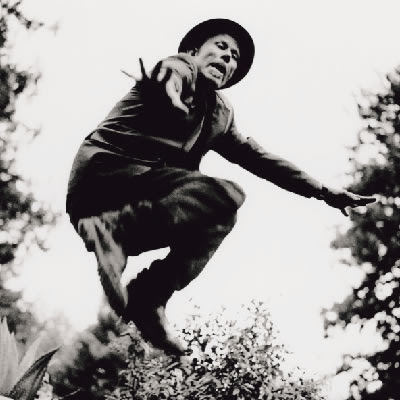 Franz Schubert (1797-1828) was a short man who lived a short life, but the thing about Franz Schubert is that he was prolific. Succinctly put, he composed over 600 lieder (songs), 9 symphonies, liturgical music, oratorio, chamber music, and some of the most sublime piano sonatas I have ever known. Not to mention one badass string quintet.
Franz Schubert (1797-1828) was a short man who lived a short life, but the thing about Franz Schubert is that he was prolific. Succinctly put, he composed over 600 lieder (songs), 9 symphonies, liturgical music, oratorio, chamber music, and some of the most sublime piano sonatas I have ever known. Not to mention one badass string quintet.
He also wrote jazz. Well, kind of, it's more like he implied jazz – keep in mind that this is music from the 19th century. Schubert was a contemporary of Beethoven and died only one year after our man Ludwig. Regardless, the composition in question is his Piano Sonata in G major (composed in 1826). The entire work is broken into 4 movements and totals about 41 minutes of music. But specifically I want to examine the content from the first movement at about 30 seconds in.
At this point in the composition Schubert implies a gospel progression as he elaborates upon the opening theme. This is a small moment in a large work but you could extrapolate more jazz implications throughout the work since this moment is thematic to the work as a whole. As a reference to the particular jazz language I want you to be on the look out for I'll hook you up with Oscar Peterson and his Hymn to Freedom (1962).
I don't know about you but this is an amazing moment in music listening to me because it tears down preconceptions and generalizations about two different artists, from two different centuries, on two different continents, working in two different genres. I hope you dig it. I do.
Oscar Peterson: Hymn to Freedom
Alfred Brendel: Piano Sonata in G (D894) Molto Moderato e Cantabile
Read More...
 Last night I was having dinner and listening to one of my favorite records ever – We Three from Roy Haynes. The album title refers to the fact that it is a jazz trio album featuring the enviable cast of Roy Haynes on drums, Paul Chambers on bass, and Phineas Newborn Jr. on piano.
Last night I was having dinner and listening to one of my favorite records ever – We Three from Roy Haynes. The album title refers to the fact that it is a jazz trio album featuring the enviable cast of Roy Haynes on drums, Paul Chambers on bass, and Phineas Newborn Jr. on piano.

 It seems that this was the week for featuring aging American composers in the national news. This week I stumbled upon an interview in
It seems that this was the week for featuring aging American composers in the national news. This week I stumbled upon an interview in  Glenn Miller (1904-1944) was an American jazz musician, his instrument was the trombone. He was also a composer, arranger, and bandleader during the swing era – one of the hippest and most enviable eras from last century. He enjoyed the most success in the early '40s until his untimely death as a MIA military casualty over the English Channel during WWII while traveling to entertain US troops.
Glenn Miller (1904-1944) was an American jazz musician, his instrument was the trombone. He was also a composer, arranger, and bandleader during the swing era – one of the hippest and most enviable eras from last century. He enjoyed the most success in the early '40s until his untimely death as a MIA military casualty over the English Channel during WWII while traveling to entertain US troops. Franz Schubert (1797-1828) was a short man who lived a short life, but the thing about Franz Schubert is that he was prolific. Succinctly put, he composed over 600 lieder (songs), 9 symphonies, liturgical music, oratorio, chamber music, and some of the most sublime piano sonatas I have ever known. Not to mention one badass string quintet.
Franz Schubert (1797-1828) was a short man who lived a short life, but the thing about Franz Schubert is that he was prolific. Succinctly put, he composed over 600 lieder (songs), 9 symphonies, liturgical music, oratorio, chamber music, and some of the most sublime piano sonatas I have ever known. Not to mention one badass string quintet. One quality of a truly remarkable performance is that there is often one note and/or one phrase that can encapsulate the grace, fire, virtuosity, subtlety, or authenticity of the artist. I believe it is the duty of all Listeners and Performers to seek out, catalog, & utilize these gestures as references to further inform their aural pallets.
One quality of a truly remarkable performance is that there is often one note and/or one phrase that can encapsulate the grace, fire, virtuosity, subtlety, or authenticity of the artist. I believe it is the duty of all Listeners and Performers to seek out, catalog, & utilize these gestures as references to further inform their aural pallets. One quality of a truly remarkable performance is that there is often one note and/or one phrase that can encapsulate the grace, fire, virtuosity, subtlety, or authenticity of the artist.
One quality of a truly remarkable performance is that there is often one note and/or one phrase that can encapsulate the grace, fire, virtuosity, subtlety, or authenticity of the artist.